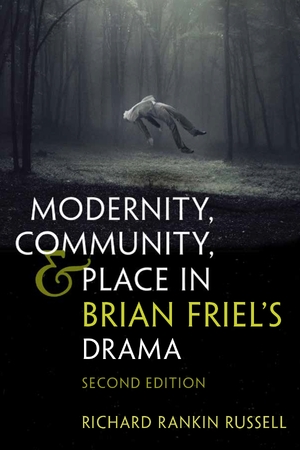"The exceptionally detailed analysis of individual plays contained within this study means that it will be a valuable resource for lectures, seminars, and tutorials. The expanded text also provides even greater depth to what was already a very rigorous and thoughtful work."—Graham Price, Reading Ireland
"A deeply thoughtful, comprehensively informed study of the greatest living playwright of the English-speaking world. From now on, anyone who wants to write about Brian Friel will need to take this book into account."—Terry Teachout, drama critic, The Wall Street Journal
"A thoughtful and stimulating read of Friel’s most canonical plays, capturing the changes from traditional kinds of communities to other possibilities of community."—Comparative Drama
"As it boldly takes novel paths, Modernity, Community, and Place in Brian Friel’s Drama is unquestionably a must for dedicated scholars and students of Irish and world theater in general, and Friel’s drama in particular."—Hungarian Journal of English and American Studies
"This is an original, beautifully written, carefully argued and textually sensitive study which illuminates areas of central concern in the imaginary of Brian Friel’s drama. It is the first to take seriously the location, environment and topography of the plays and to show how, while dramatizing the breakup of traditional communities, they also point to new possibilities of connection, especially in their engagement with audiences. The brilliant close readings of Friel’s most canonical plays are among the most satisfying interpretations these complex works have received."—Anthony Roche, editor of The Cambridge Companion to Brian Friel
"An in-depth and extensive exploration of place in some of the most important plays in the Irish theatrical canon and as such provides an important contribution to Friel studies."—Lisa Fitzgerald, Irish Studies Review
"Modernity, Community, and Place in Brian Friel’s Drama succeeds in breaking new critical ground and appears as a most timely and thorough engagement with its topics."—Estudios Irlandeses
"This study is a significant contribution to the current body of work on the influence of place in Irish writing. It treats Friel's theory of drama through explorations of real and imaginative places and the choice of 'harvest time'in which important action occurs."—Choice
"Russell's long-chapter analysis for each play allows him to tease out the details and nuances of his interpretations, which often yield complex and rewarding arguments. One of the [other] strengths of Russell's book comes from his broad knowledge: he frequently scaffolds his readings of Friel and Irish culture on a surprisingly diverse and apt assemblage of cultural theorists."—Irish University Review
"Readers familiar with the first edition of the book, will recognize in this expanded version Russell’s principal (and principled) arguments about such matters as place, community, and home in Brian Friel’s writing; the varieties of theory he mobilizes in delineating his insights; and his finely detailed readings of some of Friel’s most important plays: Philadelphia, Here I Come!, The Freedom of the City, Faith Healer, Translations, and Dancing at Lughnasa."—Stephen Watt, New Hibernia Review
Description
Modernity, Community, and Place in Brian Friel’s Drama shows how the leading Irish playwright explores a series of dynamic physical and intellectual environments, charting the impact of modernity on rural culture and on the imagined communities he strove to create between readers, and script, actors and audience.
About the Author
Richard Rankin Russell is professor of Irish and British literature at Baylor University. He is the editor and author of numerous books, including Poetry and Peace: Michael Longley, Seamus Heaney, and Northern Ireland.
September 2022


